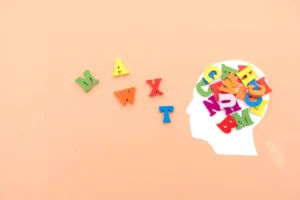Why That Chewing Noise Drives You Crazy
This article has been researched and written by Dalea Alawar. AI has not been used in producing this article.
It’s called misophonia, which literally means “hatred of sound”! It happens when someone experiences a strong emotional reaction like anger, anxiety, or disgust to:
- Mouth sounds (chewing, slurping, lip smacking, heavy breathing)
- Throat sounds (sniffing, coughing)
- Repetitive sounds (clock ticking, foot tapping, pen clicking)
So, why does this happen? Science doesn’t have all the answers yet, but there are two main hypotheses that help explain what’s going on in the brain: Brain scans of people with misophonia show extra-strong connections between the part of the brain that hears sound ( auditory cortex) and the part that feels emotions like disgust and anger (anterior insular cortex).
Translation: When someone with misophonia hears r a trigger sound, their brain fast-tracks it straight to the emotional response center – skipping the logic and reasoning parts altogether. That’s why you might find yourself snapping at your partner for chewing too loudly before you even realize you’re annoyed.
Overall, misophonia is a reaction that truly does feel outside of the control of he person experiencing it. In both theories discussed, what is clear is that the “rational” part of the brain gets bypassed entirely when you hear a triggering sound. Your brain literally does not pause to think about how to react. All of a sudden, you hear yourself snapping at your partner for eating their popcorn too loudly, as if you didn’t choose to snap.
The good news is that you can do something about this. Once you recognize your trigger sounds, you can prepare for them and decide how you want to respond – before your brain hijacks the situation. Another hypothesis is that misophonia is the result of a conditioned response. Just like a song can remind you of a breakup, misophonia may develop when the brain starts to associate certain sounds with past stress, tension, or negative experiences. For example, if you were scolded as a child for tapping your foot, your brain may now associate foot-tapping = bad feeling. So even years later, the sound alone can bring on that same stress – without you even realizing why.
So, instead of yelling at your popcom-munching partner, you might try a little humor: “Hey babe, can we put your snack on mute?” You might still be annoyed – but you’ll be in charge of your response.
Anxiety Disorders Explained: Types, Symptoms & When to Seek Help
This article has been researched and written by Mariam. AI has not been used in producing this article. Worry is part of being human. But when anxiety stops being a passing feeling and starts shaping every decision you make – what you avoid, how you sleep, how you show up at work and in relationships…
ADHD in Adults: Complete Guide to Symptoms, Diagnosis & Treatment in Dubai
This article has been researched and written by Mariam. AI has not been used in producing this article. For many adults living in Dubai, the struggle is familiar: missed deadlines, a desk that never stays organized, conversations you tuned out halfway through, and an inner voice that has spent decades whispering that you are simply…
Mental Health During Ramadan: 7 Tips for Emotional Wellbeing
This article has been researched and written by Mariam. AI has not been used in producing this article. Ramadan is a month of deep spiritual renewal, gratitude, and community. But for many Muslim residents and expats across Dubai and the UAE, it can also bring unexpected emotional challenges. Sleep disruption, fatigue, heightened anxiety during Ramadan,…
Famous People with Dyslexia
Representation matters especially when there is a stigma around dyslexia and learning disabilities in general …
Third Culture Kids: Growing Strong Roots in a Mobile World
In a city like Dubai, it is not unusual to meet a child who has already lived in three countries, attended four different …
What Can I Do If Someone Is Bullying Me at School?
If someone keeps being mean to you, teasing you, hurting you, or leaving you out on purpose, this is called bullying…







